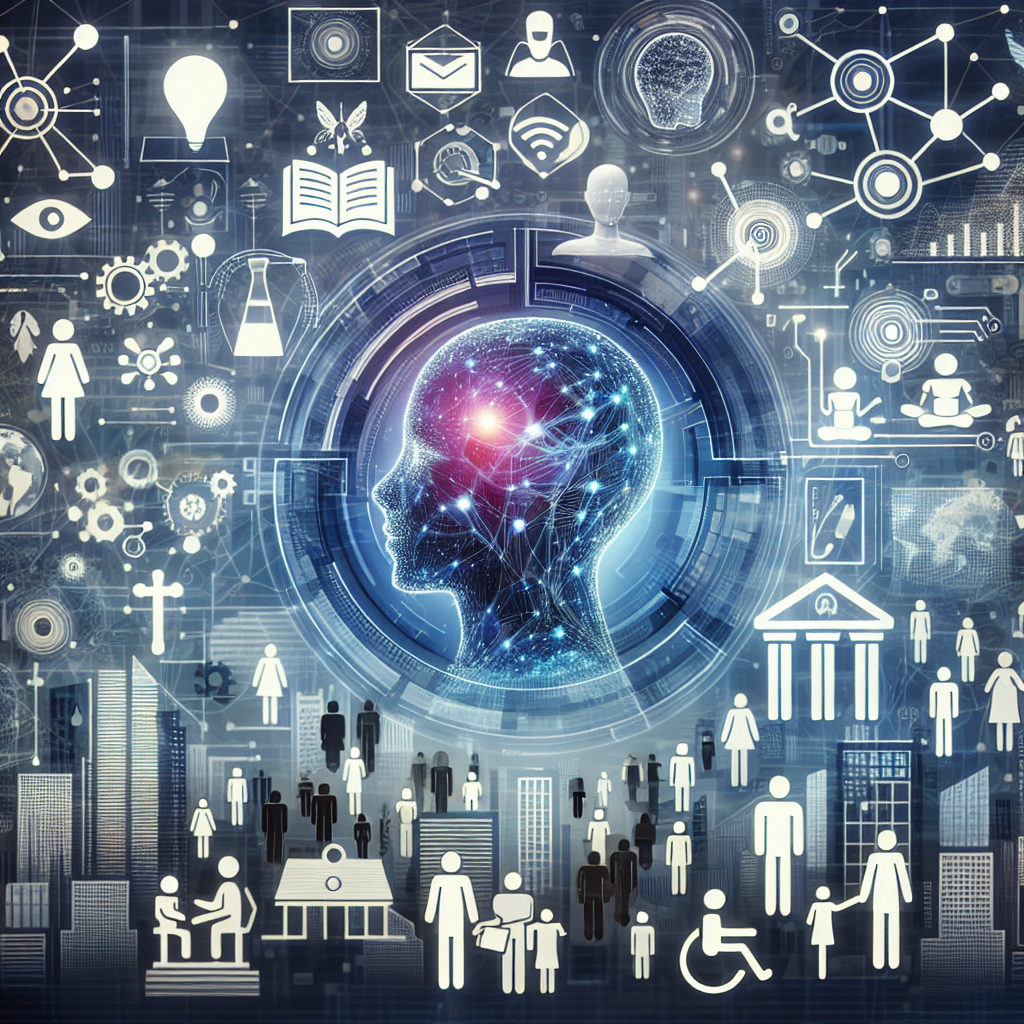Artificial General Intelligence (AGI) is a term that refers to the development of machines that have the ability to perform any intellectual task that a human can. This technology has the potential to revolutionize society in numerous ways, from healthcare and transportation to education and entertainment. However, the impact of AGI on society is a topic of much debate and speculation. In this article, we will explore the potential impact of AGI on society in the coming years and address some frequently asked questions about this emerging technology.
Impact on the Job Market
One of the most significant impacts of AGI on society is likely to be felt in the job market. As machines become increasingly capable of performing a wide range of tasks, many jobs that are currently performed by humans may become obsolete. This could lead to widespread unemployment and economic disruption, particularly in industries that rely heavily on manual labor or routine tasks.
On the other hand, AGI has the potential to create new job opportunities in fields such as artificial intelligence research, software development, and data analysis. It is also possible that AGI could lead to the creation of entirely new industries and markets that we cannot yet imagine.
Impact on Healthcare
AGI has the potential to revolutionize healthcare by enabling more accurate diagnoses, personalized treatment plans, and more efficient patient care. For example, AGI could be used to analyze medical imaging data to detect early signs of disease, or to develop personalized treatment plans based on a patient’s genetic profile.
AGI could also be used to improve the efficiency of healthcare systems by streamlining administrative tasks, reducing medical errors, and optimizing resource allocation. This could lead to better patient outcomes and lower healthcare costs.
Impact on Education
AGI has the potential to transform the way that we learn and teach by providing personalized learning experiences tailored to each individual student’s needs and abilities. For example, AGI could be used to develop adaptive learning platforms that adjust the pace and content of lessons based on a student’s progress.
AGI could also be used to automate routine tasks such as grading assignments, creating lesson plans, and providing feedback to students. This could free up teachers to focus on more creative and interactive aspects of education, such as mentoring, coaching, and project-based learning.
Impact on Transportation
AGI has the potential to revolutionize transportation by enabling self-driving cars, trucks, and other vehicles that can navigate roads safely and efficiently. This could lead to a dramatic reduction in traffic accidents, congestion, and emissions, as well as improved access to transportation for people who are unable to drive themselves.
AGI could also be used to optimize transportation networks, such as public transit systems, to reduce travel times, costs, and environmental impact. This could lead to more sustainable and equitable transportation systems that better serve the needs of all members of society.
Frequently Asked Questions
Q: What is the difference between AGI and artificial intelligence (AI)?
A: AGI refers to machines that have the ability to perform any intellectual task that a human can, while AI refers to machines that can perform specific tasks or solve specific problems. AGI is a more advanced form of AI that is capable of generalizing across different domains and adapting to new situations.
Q: How close are we to achieving AGI?
A: It is difficult to predict exactly when AGI will be achieved, as it depends on a wide range of factors including technological progress, research funding, and ethical considerations. Some experts believe that AGI could be achieved within the next few decades, while others believe that it is still many years away.
Q: What are the ethical implications of AGI?
A: AGI raises a number of ethical concerns, including issues related to privacy, security, bias, and job displacement. It is important for researchers, policymakers, and the public to address these concerns proactively to ensure that AGI is developed and deployed in a responsible and ethical manner.
Q: How can society prepare for the impact of AGI?
A: Society can prepare for the impact of AGI by investing in education and training programs that prepare people for the changing job market, by developing regulations and policies that address ethical concerns, and by fostering a culture of innovation and collaboration that enables us to harness the full potential of AGI for the benefit of all.
In conclusion, the impact of AGI on society is likely to be profound and far-reaching. While there are many potential benefits to be gained from this technology, there are also significant challenges and risks that must be addressed. By thinking critically about the potential impact of AGI and taking proactive steps to prepare for its arrival, we can ensure that this technology is used to improve the lives of all members of society.

